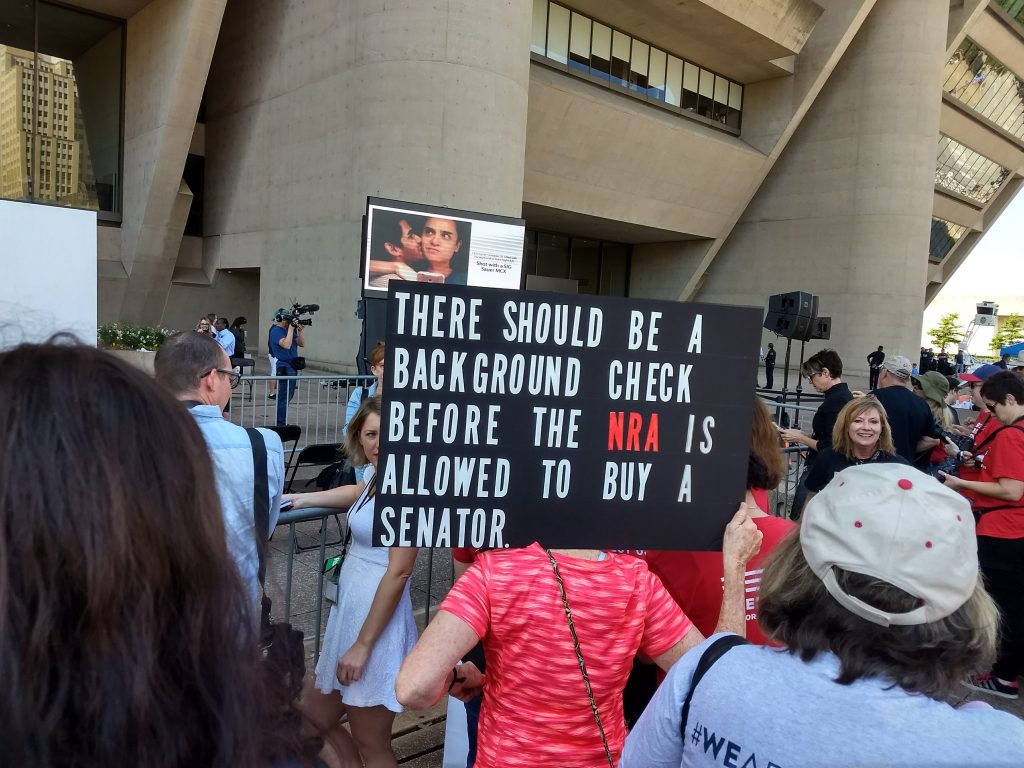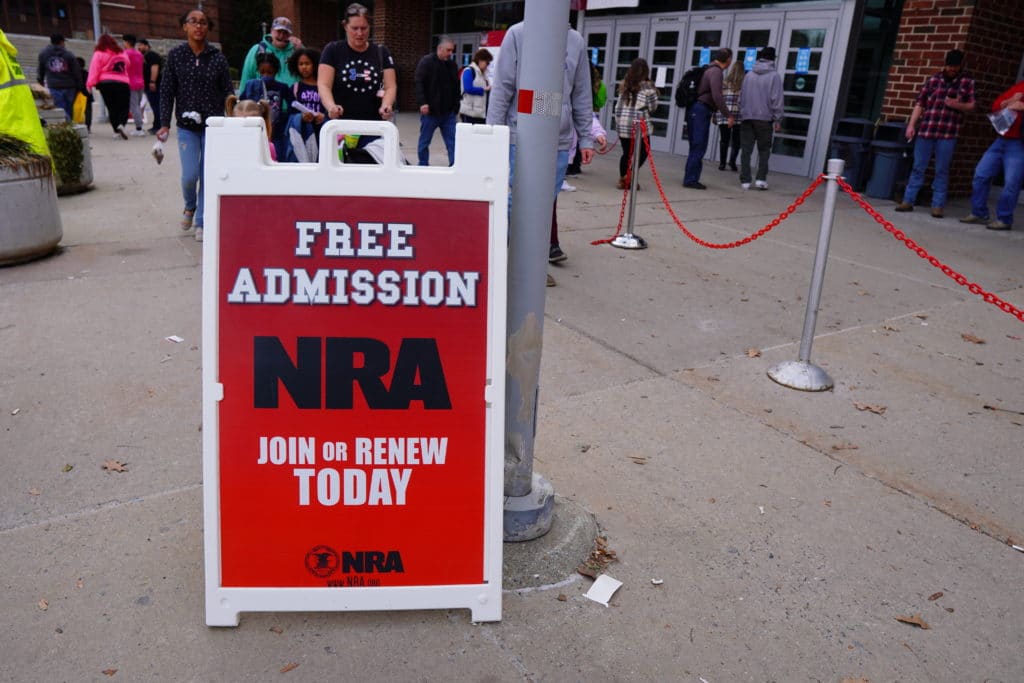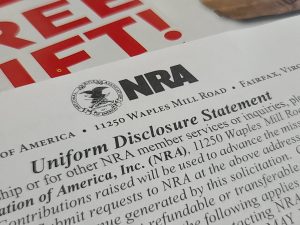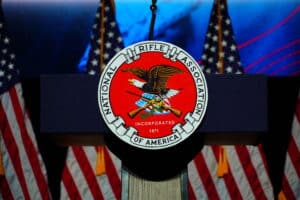Senate negotiations on a response to the recent attack on Robb Elementary School in Uvalde, Texas are ramping up. A clear set of proposals haven’t yet been worked out. Some, such as “red flag” model legislation and school security funding, are gaining more traction than others.
But, as the cross-party talks carry on and we hear how well some of the gun-control proposals poll, it’s important to consider why they so rarely make it into law. Contributing Writer Jake Fogleman takes a close look at that question and provides a few insights.
As the discussions move forward. it’s also valuable to assess the health of the most influential gun-rights group in the country. The NRA has struggled for several years running. Hit by an ongoing corruption scandal, lawsuits on several fronts, and the coronavirus pandemic, the group’s resources have waned significantly.
After the news of continued revenue and member engagement declines we broke this week, I examined how bad things have really gotten as well as why the NRA still matters so much.
Plus, active shooting response trainer Mike Willever joins the podcast to discuss the horrible mistakes made in Uvalde.

Analysis: Polls Suggest Strong Support for Gun-Control Proposals, But is it True? [Member Exclusive]
By Jake Fogleman
Support for stricter gun control has waxed and waned periodically over the years, but some individual proposals poll consistently well. Why then do these proposals routinely fail to make it into law outside of the most left-leaning states?
That’s because individual issue polling often belies true political support for many common gun-control proposals. It’s a phenomenon that has come to characterize gun politics over the last decade or so, but one that supporters of gun control have largely failed to reconcile.
The inability to pass measures like universal background checks, assault weapons bans, or magazine capacity restrictions is often rationalized away as the work of a recalcitrant and all-powerful NRA. Clearly, that must be the case when proposals like universal background checks routinely see 80-90 percent support in polling data, right?
The truth is more complicated. When it comes to gauging policy support, as with most things, the devil is in the details.
Voters may express general support for a policy, but that doesn’t always mean they’re aware of all that it entails.
Asking if a person supports “universal background checks” may garner one response. Asking if they support having to drive to an FFL, pay a transfer fee, and conduct a background check before they give a firearm to a close friend is liable to produce a very different response politically—even if that’s functionally asking the same question.
There have been multiple case studies revealing the disconnect between polling support and political will on this very question in recent years.
In 2016, voters in Nevada got a chance to vote on a ballot referendum on the question of universal background checks. While the measure was ultimately approved by voters, it only barely survived, calling into question its reputation as a supermajority supported issue.
Meddling by the gun lobby couldn’t be blamed for the narrowness of its victory. Supporters of the measure, spearheaded by Michael Bloomberg and the group Everytown for Gun Safety, outspent the NRA and other opponents three-to-one. The question was also out of the hands of politicians vulnerable to lobbying influence and instead put directly to voters, who approved it by less than half a percent of the state electorate.
An even more revealing case came that same year, on the same issue, in Maine. Mainers were asked to vote on a measure to expand background checks to all unlicensed gun sales. The lead up to the vote saw a similar dynamic as in Nevada, with supporters of the expanded gun control outspending opponents a staggering seven-to-one. Yet, voters in Maine ultimately rejected the measure by a four percent margin. And that was in the same election where voters broke for Hillary Clinton (D.) over Donald Trump (R.) in the Presidential race.
One potential explanation is a difference in voter intensity. Poll respondents may routinely express support for a policy proposal, but that tells us little about where that particular policy ranks on their hierarchy of priorities as a voter.
This seems to be the case when considering gun control proposals with high polling support among Republicans. A large majority of Republican voters may say they support universal background checks to a pollster, but their support for that issue doesn’t mean they’re willing to eschew concerns over economics, crime, or immigration and vote for Democrats in order to get it passed.
But the intensity angle applies to Democrats too. Support for an “assault weapons” ban receives upwards of 83 percent support among Democratic voters in issue polling. Yet the policy hasn’t even been put to a floor vote in the House of Representatives since Democrats took the majority in 2018.
Politico initially reported an assault weapons ban would also not be part of the House Democrats’ response to the Uvalde shooting.
House Speaker Pelosi (D.) has suggested that might change in the near future, but that’s still no guarantee of serious action, let alone passable legislation. When the Senate last voted on an assault weapons ban following the massacre at Sandy Hook it only received 40 votes. That’s despite the fact that Democrats enjoyed a 53-47 majority at the time.
It seems Democrats understand, at least on some level, that a not-insignificant portion of voters doesn’t support such a ban.
So, whether one decides to chalk it up to the NRA, status quo bias, or some other electoral distortion, support for common gun-control proposals is often far more fickle than polling indicates, much to the chagrin of gun control supporters. Keep that in mind as Congress prepares to make its biggest gun-control push in years over the coming weeks.
Podcast: Active Shooting Response Trainer Mike Willever on Mistakes in Uvalde [Member Early Access]
By Stephen Gutowski
The more we learn about the law enforcement response to the Uvalde, Texas school shooting, the worse it looks.
After an initial exchange of fire with the shooter, police waited upwards of an hour to storm the room he was in and neutralize him. I’ve taken multiple active shooter training courses, and this response appears to go against everything people have been taught for decades. It also seems to have given the attacker the opportunity to kill more children.
But I wanted to bring on somebody even better versed in both active shooter response training and what it’s like to respond to a shooting in reality. That’s why Active Self Protection’s Mike Willever joined the show this week. He is a former federal agent who taught active shooter response training. He also once responded to a shooting as it was happening.
He was as exasperated by the response to Robb Elementary School as I was. Active shooter response training is not complicated, he said. You go to the threat as fast as you can and neutralize it before doing anything else.
Willever said, from what we know now, it does not make sense that leadership on the scene decided to treat the shooter as a barricaded suspect. When shots are still being fired, as they were in this case, there is no reason to wait. When there are injured victims trapped inside with the shooter, as they were in this case, there is no reason to wait.
There just isn’t an excuse for how law enforcement handled this. And there never will be.
Plus, Contributing Writer Jake Fogleman and I discuss the latest dismal financial release from the NRA.
You can listen to the show on your favorite podcasting app or by clicking here.
Video of the episode is also available on our YouTube channel.

Analysis: The NRA is Weaker Than Ever Just as the Push for Gun Control Heats Up [Member Exclusive]
By Stephen Gutowski
The NRA is in trouble and the timing couldn’t be worse for gun-rights advocates.
The gun group’s finances are in shambles. It has lost $130 million in revenue since 2018. It has cut spending by $177 million in the same time period.
Membership has been in decline since 2018. Dues have dropped nearly $73 million in that time. Attendance at the group’s annual meeting in Houston, Texas over the weekend was the lowest it’s been since 2006. Turnout for the NRA board elections in 2022 was down 15 percent from last year and saw fewer ballots returned than any time since 2006.
Only 544 members voted in the 76th board member election at the meeting itself.
That has all happened amidst legal and internal turmoil stemming from corruption allegations levied against Executive Vice President Wayne LaPierre and other members of NRA leadership. The group has been fighting both itself and the New York Attorney General Letitia James for the better part of three years. Even after a failed bankruptcy ploy, the organization continues to have a legal cloud looming over them.
That puts the group in a weakened state. It has fewer resources to advocate for its policy positions. It has less sway over the members that power its political influence. It could soon face a court-ordered reckoning.
And it all comes as the group faces its most difficult fight in years.
The recent shootings in Buffalo and, especially, Robb Elementary School in Texas have reignited the fight over gun policy at the state and federal levels. President Joe Biden (D.) is pushing for a slew of new restrictions. Speaker of the House Nancy Pelosi (D.) is already moving some of the restrictions through the House.
In the Senate, a bipartisan group is working towards compromise legislation.
There are ongoing discussions about a number of bills. School security proposals, such as expanding the Secret Service’s threat assessment center, have some support. But a “red flag” model law, which would incentivize states to pass the policy, is getting more traction.
“Grants are a little less controversial politically than a fed statute,” one Republican staffer with knowledge of the conversations who wasn’t authorized to speak publicly told The Reload. “If you do have one, want to write one, and want to help implement it or update, etc, here is some fed help. But again, voluntary. Your choice.”
President Biden pushed for an age restriction on the sale of AR-15s and similar rifles in lieu of a total ban on their sale. However, the staffer said that was much less likely.
“Don’t see national age restrictions happening,” they said. “Limited appeal for that approach. You will see states go down that road – New York Governor already pushing it, but not seeing the appetite for that in the Congress in a sustainable way.”
The source said they weren’t sure how active the NRA has been on the Hill since discussions began but noted the group has offered some support for red flag laws in the past.
Whether the NRA does or not this time around remains to be seen. But whether it still has the influence to make a difference is the more important question.
Some will argue it may not matter because of the other gun-rights groups out there.
The Firearms Policy Coalition (FPC), Second Amendment Foundation (SAF), and Gun Owners of America (GOA) have grown as the NRA has shrunk. But they remain far smaller. While the NRA has fallen from a $400 million organization to a $280 million organization over the past three years, that still makes it many times larger than the other groups combined.
None of them, nor the major gun-control groups, could hope to pull off an event like the NRA Annual Meeting, even considering its decline this year.
FPC and SAF are increasingly active in filing gun-rights suits with significant success. But the NRA is also the one behind the case currently being considered by the Supreme Court. GOA has begun expanding its presence at the state level. State-based groups provide another boost in that area. But the NRA remains the only group with a nationwide lobbying operation and a significant presence on Capitol Hill.
In the end, the real reason it may not matter if the NRA is as influential enough to impact the debate on its own has more to do with what gave the group power in the first place: gun owners.
As the NRA has either fallen into the increasing polarization of our national politics or driven it forward, depending on your perspective, it has lost influence with some moderate Republicans and nearly all Democrats. It is not NRA donations that kept the Democratically-controlled House from passing an “assault weapons” ban since President Biden took office. And it wasn’t Senators with A ratings from the NRA who kept the President’s first ATF nominee from getting the 50 votes he needed for confirmation.
Instead, it was the realization that voters Democrats need to hold on to power value their gun rights. And it’s that realization that could keep severe restrictions on gun ownership from passing now. That epiphany could still occur without an effective push from the NRA, but it would be a lot easier to make happen with one.
That’s it for now.
I’ll talk to you all again soon.
Thanks,
Stephen Gutowski
Founder
The Reload






